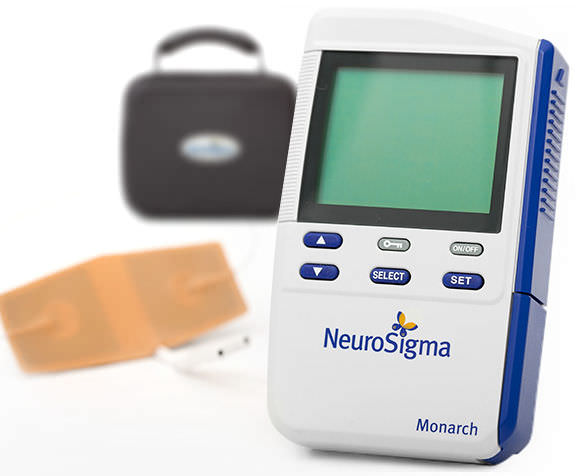Ended soon
NeuroSigma, Inc. (NeuroSigma), a California-based life sciences company focused on commercialization of its non-invasive Monarch eTNS System for the treatment of neurological and neuropsychiatric disorders, today announced that the U.S. Department of the Army, through the U.S. Army Medical Research and Material Command, has funded a Phase II clinical trial at the University of California, Los Angeles (UCLA), that will examine the use of external trigeminal nerve stimulation (eTNS) as treatment for post-traumatic stress disorder (PTSD).

Andrew Leuchter, M.D., Professor of Psychiatry and Biobehavioral Sciences at UCLA and a physician at the Greater Los Angeles Veterans Administration (GLAVA) Health Care System, will lead the study as Principal Investigator. The Phase II clinical trial will enroll 74 subjects to evaluate eTNS as adjunctive therapy under double-blind conditions for military combat veterans who are still symptomatic despite trials of conventional treatments through the GLAVA PTSD program. An earlier Phase I clinical trial of eTNS for the adjunctive treatment of PTSD, conducted at UCLA and funded by NeuroSigma, found significant improvements in the severity of PTSD symptoms with eight weeks of nightly eTNS therapy. NeuroSigma will supply eTNS Systems to Tech support the trial. Dr. Leuchter does not have any affiliation with NeuroSigma.
PTSD is an anxiety condition that arises after exposure to a traumatic event, such as the threat of physical harm in military combat, but also domestic violence, car accidents, terrorist attacks and natural disasters such as earthquakes or hurricanes. Symptoms include flashbacks, nightmares, emotional numbing, avoiding situations that are reminders of the experience, being easily startled, and feeling tense or “on edge.” These symptoms may make it difficult to go about daily life, perform well in school or at work, or to have social relationships. According to the Nebraska Department of Veterans’ Affairs, an estimated 7.8% of Americans will experience PTSD at some point in their lives and about 3.6% of U.S. adults aged 18 to 54 (5.2 million people) have PTSD during the course of a given year.
“We are delighted that the U.S. Army will support Dr. Leuchter and his colleagues in this important study in PTSD. Many of our brave veterans have returned from combat with PTSD, and need more effective treatment options,” noted Leon Ekchian, Ph.D., NeuroSigma’s President and CEO.
“Despite the best pharmaceutical and psychological treatments for PTSD, many patients still experience symptoms after months and months of trying to get well, with impact not only on their lives, but also on their families and their communities. Dr. Leuchter and his team are to be congratulated for securing competitive federal funding for this rigorous double-blind clinical trial,” said Ian Cook, M.D, NeuroSigma’s Chief Medical Officer and Senior Vice President. “The Phase I clinical trial found improvement in PTSD symptom severity and also in measures of depression and quality of life. This Phase II trial will evaluate the effects of eTNS on PTSD in a larger group and specifically in combat veterans. We owe it to our veterans to develop new treatments to address their unmet medical needs. A safe, non-invasive neuromodulation treatment may be able to help give them back their lives where other treatments have fallen short.”
Background – The Monarch eTNS System from NeuroSigma
In August 2012, NeuroSigma received CE Mark approval to market NeuroSigma’s first trigeminal nerve stimulation (TNS) product, the Monarch™ eTNS™ System, in the European Union, for the adjunctive treatment of epilepsy and major depressive disorder (MDD) for adults and children nine years and older. In addition, the Monarch™ eTNS™ System also received a Class II medical device license from Health Canada in April of 2013 allowing NeuroSigma to market the system for treatment of drug-resistant epilepsy (DRE) and MDD for adults and children nine years and older. In April of 2014, NeuroSigma received approval from the Australian Therapeutic Goods Administration (TGA) to market the system in Australia for the adjunctive treatment of DRE in adults and children nine years and older. NeuroSigma is currently offering the Monarch™ eTNS™ System to patients in these jurisdictions with a physician’s prescription.
The Monarch™ eTNS™ System is composed of a cell-phone sized pulse generator and a single-use patch that is applied to the forehead. Signals are transmitted through lead wires to the patch in order to stimulate the trigeminal nerve in the skin of the forehead; triggering these nerve fibers sends signals to targeted brain regions and changes the activity there. Patients may conveniently self-administer the Monarch™ eTNS™ System at home and typically use the device while sleeping.
Background – TNS
The trigeminal nerve is the largest cranial nerve, offering a high-bandwidth pathway for signals to enter the brain, bilaterally and at high frequency. The trigeminal nerve projects directly or indirectly to specific areas of the brain, such as the locus coeruleus, nucleus tractus solitarius, thalamus, and the cerebral cortex, which are involved in epilepsy, depression, PTSD, ADHD, and other disorders.
Trigeminal Nerve Stimulation (TNS) is the electrical stimulation of branches of the trigeminal nerve, which are located near the surface of the forehead. Functional neuroimaging data suggests the mechanism of action of TNS is related to its ability to modulate activity in targeted brain regions.
CAUTION: In the United States, eTNS™ is an investigational device and is limited by Federal law to investigational use. The U.S. Food and Drug Administration (FDA) has given NeuroSigma approval to proceed with a pivotal Phase III clinical trial of eTNS in drug-resistant epilepsy. Completion of that Phase III study is necessary before the FDA will consider permitting the marketing and sale of eTNS in the United States.
eTNS, Monarch, and Monarch eTNS are trademarks of NeuroSigma, Inc.




